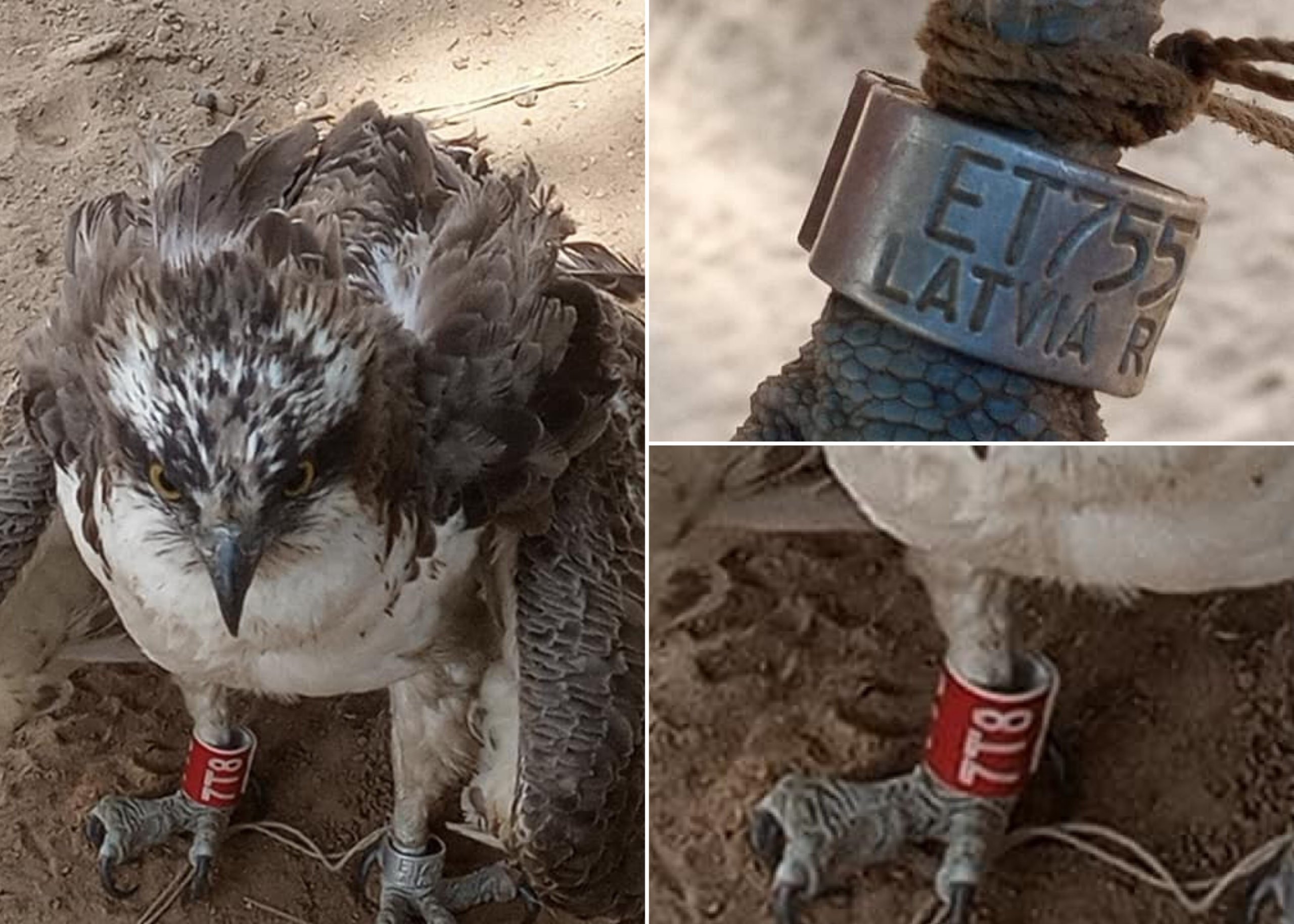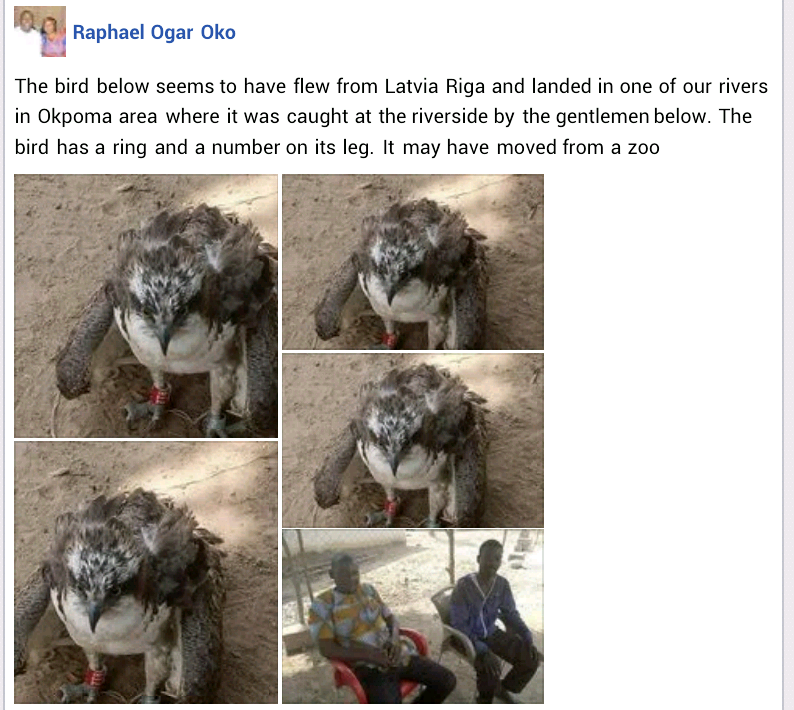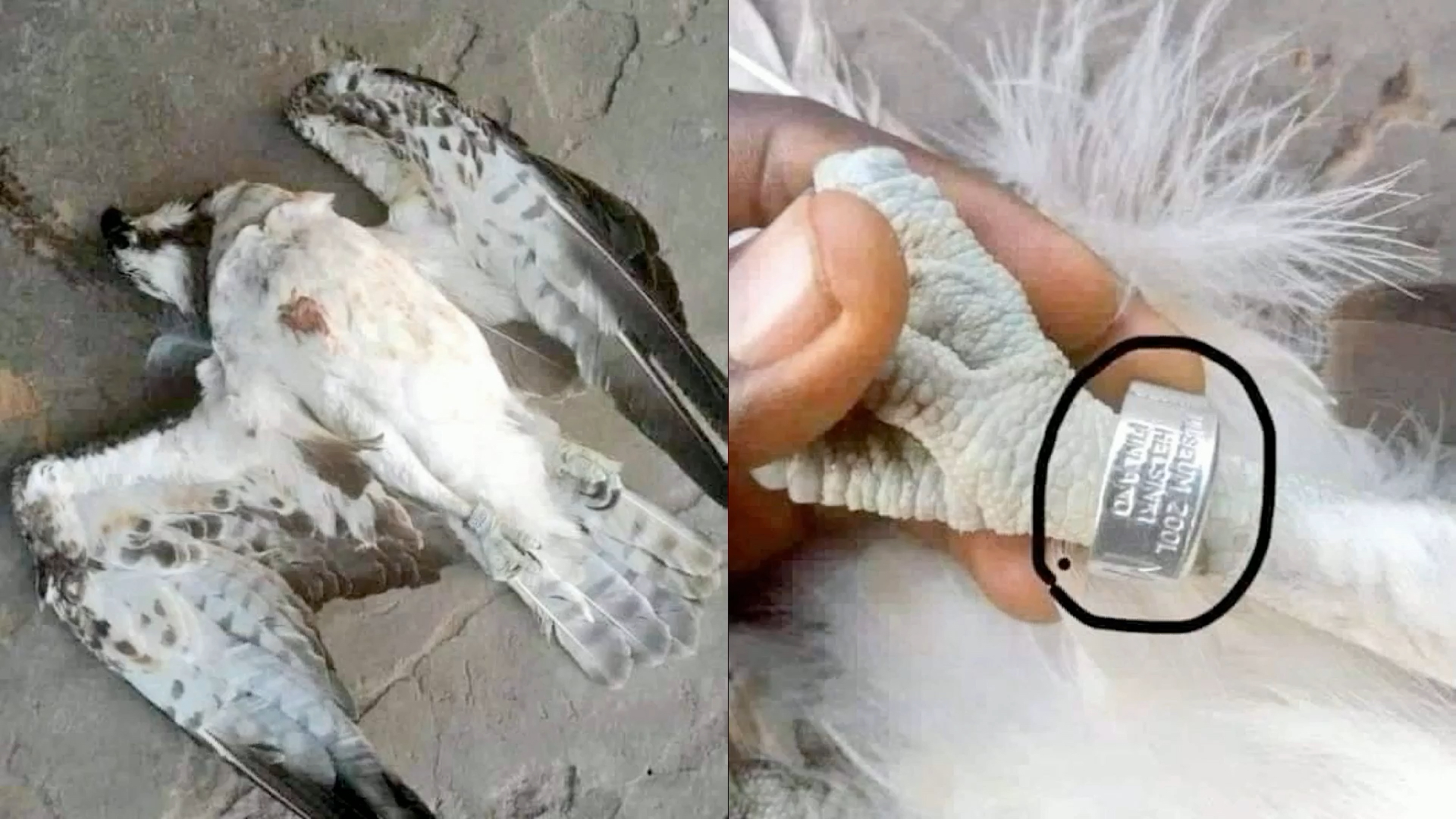 A bird suspected to have flown from Riga, capital of Latvia in Europe, was on Sunday, January 18 caught in Cross River state.
A bird suspected to have flown from Riga, capital of Latvia in Europe, was on Sunday, January 18 caught in Cross River state.
According to a Facebook user, Raphael Ogar Oko, who shared the story, the bird with two identification rings on its two limbs, may have flown from a zoo in the European country.
The bird, which species was yet to be identified, was caught by the two men pictured below in Okpoma, headquarters of Yale Local Government Area of the state.

Oko in his post added;
The bird below seems to have flew from Latvia Riga and landed in one of our rivers in Okpoma area where it was caught at the riverside by the gentlemen below. The bird has a ring and a number on its leg. It may have moved from a zoo.
 In a similar occurrence in November 2020, a Peregrine Falcon, world’s fastest bird and ‘fastest member of the animal kingdom’, that flew into Nigeria from Europe was killed.
In a similar occurrence in November 2020, a Peregrine Falcon, world’s fastest bird and ‘fastest member of the animal kingdom’, that flew into Nigeria from Europe was killed.
Read Also: World’s Fastest Animal Peregrine Falcon That Flew From Finland Killed In Delta
Peregrine Falcon birds are renowned for their speed, which is over 320 km/h (200 mph) during its characteristic hunting stoop (high-speed dive).
According to National Geographic, the highest measured speed of a peregrine falcon, putting it at 389 km/h (242 mph), in other words, if a Peregrine Falcon were a car, it will the 13th fastest car in the world in 2020, beating even Pagani Huayra-BC in speed, and almost be at per with Bugatti Veyron super sport.
The remarkable falcon, now endangered, flew in from Finlands to Delta State but unfortunately met its waterloo.
An iron tag which read “Museum 200L Helsinki Finland” was found attached to one of it’s claws.
The discovery of these rare types of birds in Nigeria may be cases of bird migration. Birds migrate to move from areas of low or decreasing resources to areas of high or increasing resources.
The two primary resources being sought are food and nesting locations. As cold season approaches and the availability of insects and other food drops, the birds south again.
Escaping the cold is a motivating factor but many species, including hummingbirds, can withstand freezing temperatures as long as an adequate supply of food is available.


